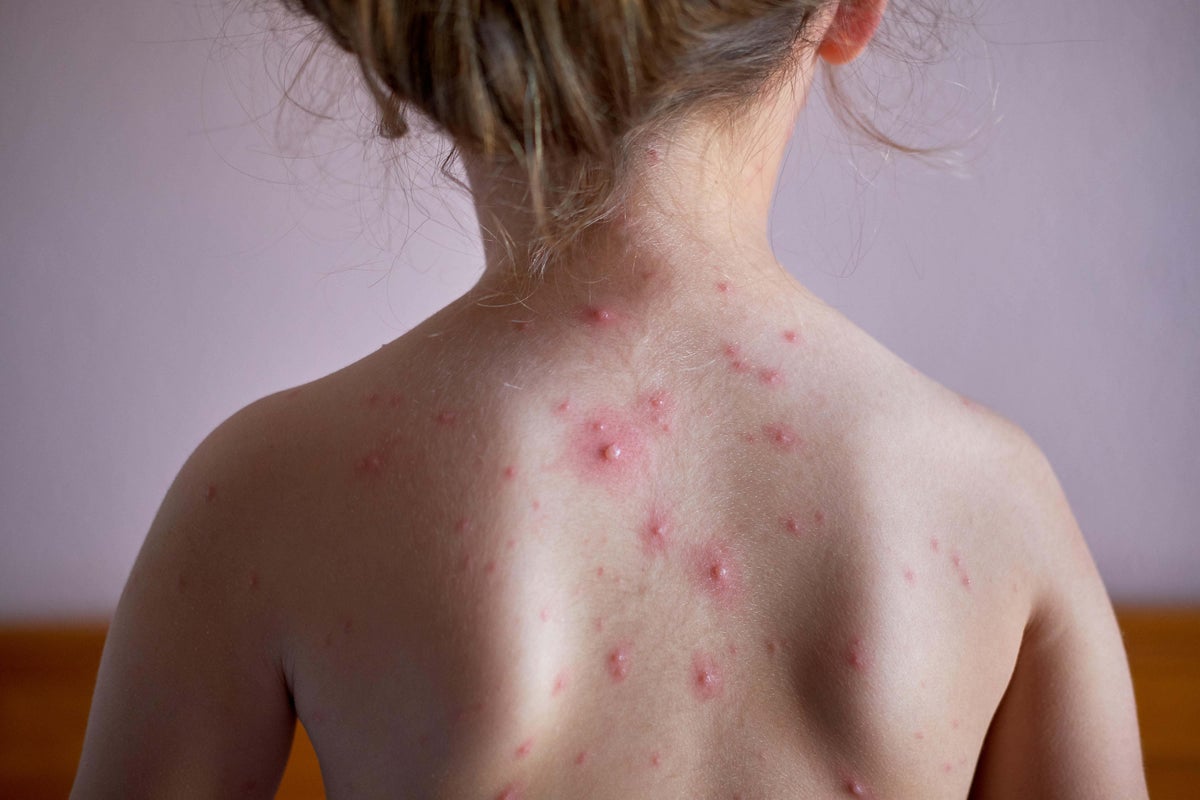
A vaccine for chickenpox will be rolled out on the NHS in England from January, officials have announced.
The jab, which currently costs around £150 at private clinics and pharmacies, will form part of a new combined immunisation on the childhood vaccination programme.
Ministers hope it will not only protect some youngsters from severe complications from the virus, but also prevent parents taking time off work to look after their children when they become infected.
Chickenpox is a common childhood illness and is usually mild.
The main symptom is an itchy, spotty rash over the body, but before this appears children may have a high temperature, a loss of appetite, and may feel generally unwell.
Chickenpox usually gets better on its own within one to two weeks, although some children can develop complications such as bacterial infections like group A strep.
In rare cases, the virus can cause swelling of the brain, serious lung inflammation and stroke, sometimes leading to death.
The chickenpox vaccine – also known as the varicella jab – will form part of a new combined MMRV (measles, mumps, rubella and varicella) vaccine.
It will be offered at GP practices from January 2026, and is expected to offer protection to around 500,000 children every year.
The MMRV will eventually replace the MMR, which is offered to babies at 12 months and 18 months.
It is the first time protection against another disease has been added to the routine childhood vaccination programme since 2015.
Dr Gayatri Amirthalingam, deputy director of immunisation at the UK Health Security Agency (UKHSA), said: “Most parents probably consider chickenpox to be a common and mild illness, but for some babies, young children and even adults, chickenpox can be very serious, leading to hospital admission and tragically, while rare, it can be fatal.
“It is excellent news, that from next January, we will be introducing a vaccine to protect against chickenpox into the NHS routine childhood vaccination programme – helping prevent what is for most a nasty illness and for those who develop severe symptoms, it could be a life saver.”
According to the Department of Health and Social Care (DHSC), chickenpox causes an estimated £24 million in lost income and productivity every year in the UK, with parents forced to take time off work to care for their children.
The rollout of the vaccine is also expected to save the NHS £15 million a year in costs for treating the illness.
Health minister Stephen Kinnock said: “We’re giving parents the power to protect their children from chickenpox and its serious complications, while keeping them in nursery or the classroom where they belong and preventing parents from scrambling for childcare or having to miss work.
“This vaccine puts children’s health first and gives working families the support they deserve.”
The chickenpox vaccine is already part of the routine vaccine schedules in a number of countries, including Germany, Australia, Canada and the US.
The Joint Committee on Vaccination and Immunisation (JCVI), which advises UK health departments, recommended the introduction of the jab on the NHS in November 2023.
Private jabs at pharmacies and clinics currently cost around £150 for a full course.
Amanda Doyle, national director for primary care and community services at NHS England, said: “This is a hugely positive moment for families as the NHS gets ready to roll out a vaccine to protect children against chickenpox for the first time, adding to the arsenal of other routine jabs that safeguard against serious illness.
“We will work with vaccination teams and GP surgeries across the country to rollout the combined MMRV vaccine in the new year, helping to keep children healthy and prevent sickness from these highly contagious viruses.”
The announcement comes as new data revealed none of the main childhood vaccines in England reached the 95% uptake target in 2024/25.
Some 91.9% of five-year-olds had received one dose of the MMR vaccine, unchanged from 2023/24 and the lowest level since 2010/11, according to the UKHSA.
Just 83.7% of five-year-olds had received both MMR doses, down year on year from 83.9% and the lowest level since 2009/10.
Uptake of the first MMR dose at 24 months stood at 88.9% in 2024/25 – unchanged on the previous year, but again the lowest figure since 2009/10.
